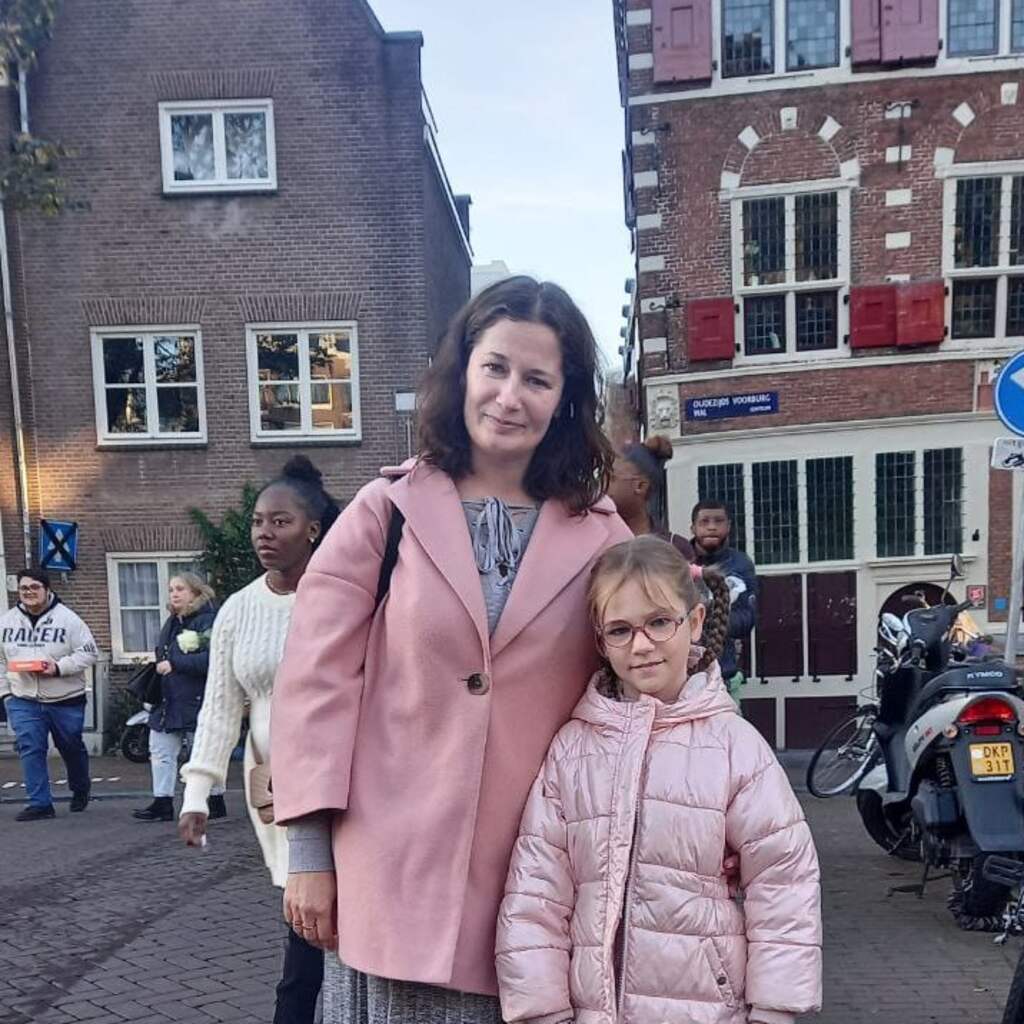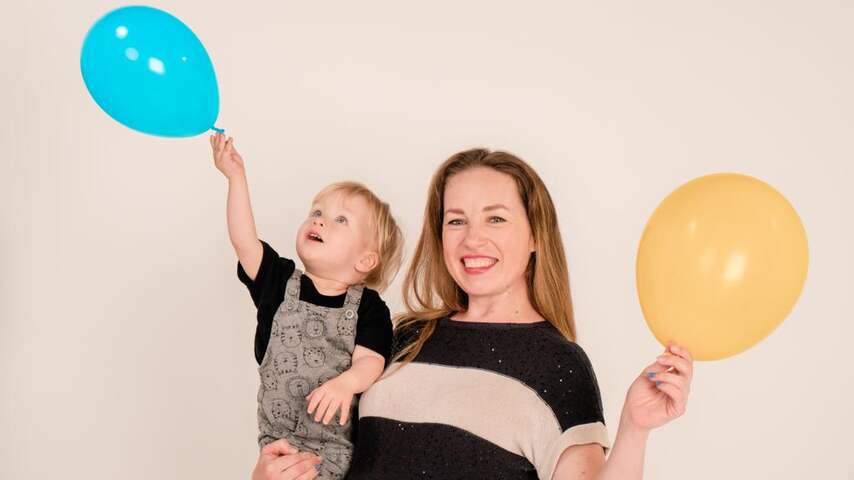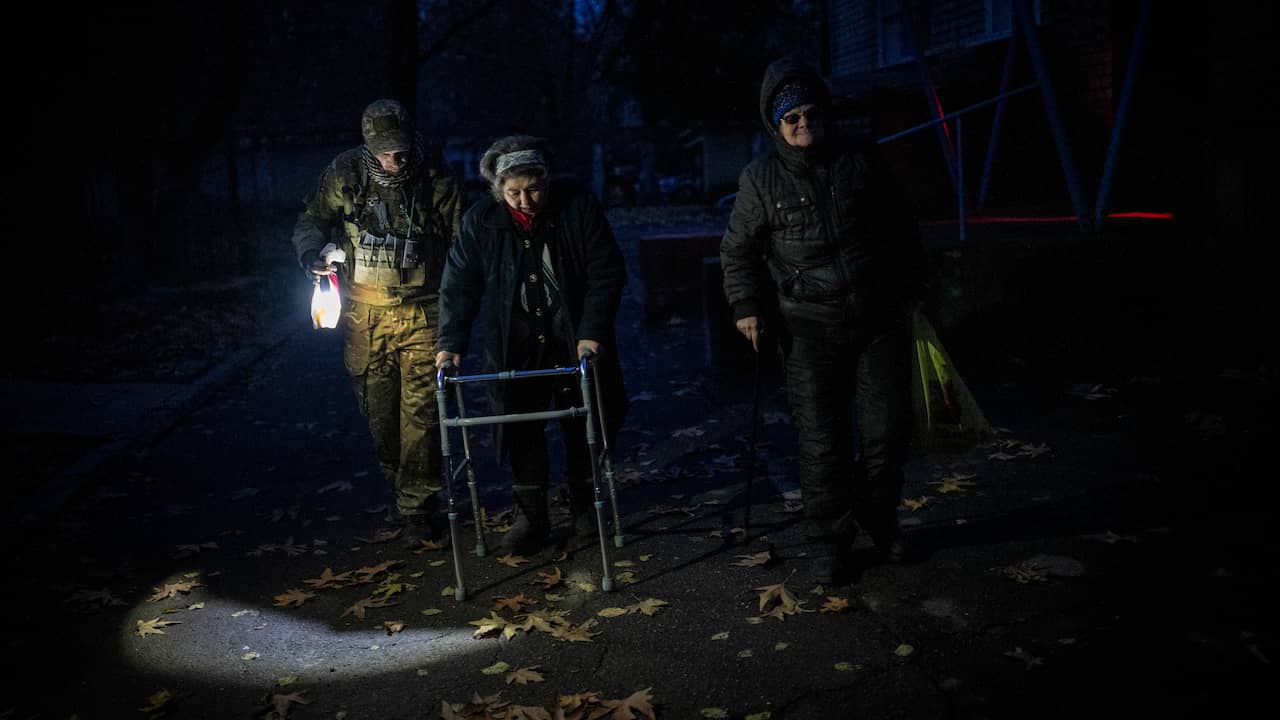Tens of thousands of Ukrainians will celebrate Christmas and Ukrainian New Year Malanka away from home this year. They do so in relative solitude: many have been living in the Netherlands for months without family and friends. How do they live here? “I understand that not everyone is waiting for refugees.”
De achttienjarige Ivanova Ksenia arriveert begin april alleen in Nederland. De student wordt door haar ouders zo’n beetje gedwongen het familiehuis in Kyiv te verlaten. De rest van het gezin blijft achter bij haar vader, die het land niet mag verlaten vanwege de afgekondigde mobilisatie. “Ik wilde niet weg, maar mijn ouders wilden mij in veiligheid hebben omdat zij zich dan beter voelen”, zegt Ivanova.
De reis naar Nederland verloopt stroef. Het is überhaupt de eerste grote reis die Ivanova alleen onderneemt. Aan de Slowaakse grens moet ze afscheid nemen van haar familie. Daarna wacht ruim een dag aan tjokvolle evacuatietreinen, waarin ze vrijwel niet kan slapen.
Ik zie Russische inwoners als onderdeel van het systeem dat mijn land vernietigt.
Ivanova kiest voor Nederland met het oog op haar studie. Momenteel zet ze vanuit een asielopvanglocatie in Den Haag haar Oekraïense opleiding politicologie door. In Nederland sluiten veel Engelse vervolgstudies hierop aan.
Maar als eenzame achttienjarige is het moeilijk om haar leven hier op te bouwen, zegt ze. Zo vindt ze snel een baan als serveerder in de horeca, maar kan ze dit werk vanwege haar drukke studie niet lang doen. Dat terwijl ze als Oekraïense ook geconfronteerd wordt met de (veel) hogere prijzen in Nederland. “Het maakt het moeilijker om hier te leven.”
‘Ik wil voorlopig niets met Russen te maken hebben’
Om de Nederlandse bevolking maakt Ivanova zich minder druk. “Mensen hier zijn heel vriendelijk. Daar ben ik dankbaar voor”, benadrukt ze. Ze maakt veel vrienden, maar door haar verblijf in de asielopvang gaat ze voornamelijk om met andere Oost-Europeanen.
Met Russen wil ze voorlopig niets te maken hebben. “Ik begrijp dat de Russische propagandamachine heel sterk is en veel invloed heeft. Maar ik zag aan het begin van het conflict al enorme steun van gewone Russen voor de oorlog. Daarom zie ik hen als onderdeel van het systeem dat mijn land vernietigt. Ik heb geen medelijden met de mensen die nu het land ontvluchten voor de mobilisatie.”
“My daughters are safe and can go to school”
37-year-old Vera Yemelianova arrived in the Netherlands in July with her three daughters (aged seven, twelve and fourteen). Her 40-year-old husband remained in Kharkiv and only joined them last month. You may leave the country due to a new exceptional status. The Kiev government decided at the end of September to exempt her fathers with at least three children from the mobilization.
Vera had been staying with a host family in North Brabant for months. She is eternally grateful to them for the care she has received. “They picked us up at the airport and have taken care of us ever since. She costs a lot of money and I am aware that not everyone can afford it.”
We will always want to come back to build our beautiful country.
However, in October, Vera decided to exchange host family for a regular host place in Valkenswaard. Not because of a fight, she points out. “But that family also had three daughters. There were nine of us in total, with many different cultures. He was just a little busy.”
Her daughters are enjoying life in the Netherlands, says Vera. “They’re safe, they can go to school and they have friends to hang out with. That’s really important to girls at that teenage age.”
‘I wish it never came to this’
Vera herself has difficulty accepting a life as a refugee. “I wish it had never come to this. I had a bank account, a car, a house and a life. Now I have to rebuild everything.” She laughs that she “fortunately” needs fewer friends than her teenage daughters and she says she can still be friends with Russians. “She may sound crazy now, but hopefully not in the future.”
Vera understands that not all Dutch people welcome refugees, but she is still grateful for the opportunities the Netherlands offers them. For example, she has been employed in a garden shop in Helmond, she is learning the language and is fascinated by nature and the cycling climate. The only downside, she points to public transport – she finds it very expensive.
Ivanova and Vera do not yet know whether they will stay in the Netherlands. When the war is over, they’ll still come back. Vera: “My family and friends are still at home. Of course we always want to come back to build our beautiful country.”

“Neighbors and strangers have brought us a lot of things”
Tetiana Krolivets (40) has been living with a host family in Rosmalen since March with her two-year-old son and her 70-year-old mother. She says she has not suffered severe trauma from the war. She simply describes having to flee Kharkiv during a bombing raid as “not the easiest part of our lives”.
Tetiana says she “undoubtedly” picked the right host country. She already knew a little about the Netherlands and she knew that many locals speak English. She agrees it’s a tough time for her mother. She “she has never been outside of Ukraine, she doesn’t speak English and she can’t handle translation apps. She speaks almost only with those who stayed in Ukraine”.
Other than that, Tetiana has nothing but praise. “After we got to the host family, neighbors and strangers came to deliver everything from diapers to bikes,” she smiles. When Tetiana was hired at an orthodontist’s office, her colleagues gave her large boxes of LEGO for her son.
Russians are part of the reason my life is messed up. I can’t treat them like everyone else.
He also hears examples of Dutch generosity from other Ukrainians. “A friend who was walking her dog received 20 euros from another man to buy something for her dog. I myself witnessed an old woman offer me shelter. She said she had enough money and space , and she offered to pay for the items in my shopping cart for me. I’ll never forget that gesture.”
Like Ivanova, she cannot treat Russians like everyone else. “They are part of the reason my life has been turned upside down and I haven’t seen my family in eight months. The deafening silence allowed Putin to start the war. I understand they are afraid of going to prison, but I will never understand that the Russians were silent when their men killed our people.”



